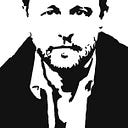Lessons on Success From Peter Parker
Being the weepy old man that I am, it may not surprise you to hear that I teared up a couple of times watching the Into The Spider-Verse trailer.
Not the movie. The trailer.
I’m sure I’d tear up in the movie too, but I haven’t seen it yet.
One of the moments from the trailer that got me was when Spider-Man (Peter Parker) tells his young protege Spider-Man (Miles Morales) that he can’t think about saving the whole world. He just has to think about saving one person. Miles pictures his dad. Cue the waterworks.
The line has stuck with me. Not only is it a good line. It’s a good lesson. And not just in superhero-ing, but in life in general.
Good lessons show up in more than one place, usually. If you’re into the Bible, the apostle Paul tells us not to try and be everything to everyone. Jesus tells us when can only serve one master. They’re both expressing the same truth that Spider-Man did — don’t reduce your power by splitting your focus. Aim at one target.
What power is gained by such focus? Shouldn’t we want to help as many people as possible? Yes, we should. And when we help one person, we create a ripple effect.
My hero, Joseph Campbell, used to quote W.B Yeats a lot. Specifically, his poem The Second Coming — a downcast portrait of post-WWI Civilization:
Turning and turning in the widening gyre
The falcon cannot hear the falconer;
Things fall apart; the centre cannot hold;
Mere anarchy is loosed upon the world,
The blood-dimmed tide is loosed, and everywhere
The ceremony of innocence is drowned;
The best lack all conviction, while the worst
Are full of passionate intensity.The second coming was a picture of the world. A world in desperate need of revitalization.
Campbell believed it was everyman’s destiny, whether every man accepted it or not, to find their purpose in life. He called it, “bliss.” Upon finding it, a person would begin to revitalize the word. When we find our purpose, we touch the people next to us with joy and meaning. A ripple effect.
I believe that. It’s my mission in life, actually. I empower others towards meaning. I’m trying to revitalize the wasteland. I fix a few people. They ripple out and fix others. You should try it. How?
By focusing. On one person. One problem.
I had a job once. I was poorly managed there. The boss was overwhelmed. Didn’t know how to lead. He threw a lot of responsibility at his employees. Tried to please every customer that walked in the door. Took their side over the people he had hired. Didn’t encourage. Didn’t inspire. Didn’t lead.
I had a hard time working up the energy and the will to make this particular boss happy. So, I quit trying. Instead, I picked a co-worker. The one who would work the shift after mine. I started trying to make that co-worker happy. Started trying to make their job easier. I found, when I did that, I, by osmosis, almost, ultimately, made the boss and the customers happy.
I think in most professions, it’s a good idea to make the customer the target of your efforts.
No duh, right?
Even though it sounds obvious, how many of us get lost in the weeds trying to please management, upper-management, stockholders, etc, when, if we just focused on the customer, the person in front of us, it would all work itself out?
Okay, so I’ve given you some obvious, Pinterest-worthy advice: “Serve your customer, first.” Great. How do you do that?
Success guru, Napoleon Hill, had some good thoughts on this, I think:
“Men who succeed in business do so entirely because of the way they relate themselves to their associates and to others outside the business. Professional men who succeed, do so largely because of the manner in which they relate themselves to their clients. It is much more important for the lawyer to know people and to know the laws of nature than it is to know the law. And the doctor is a failure before he starts unless he knows how to relate himselves to his patients, so as to establish their faith in him.”
Your clients care about your skill, your experience, your knowledge, and your credentials, sure. But more than that, more than anything, they care how you relate to them.
That’s what I teach people to do. To relate to their clients. THROUGH STORY. Story is how we communicate. It’s how we make sense of the world.
Learning to properly listen to and tell stories is like learning the secret operating system of humans.
If you want to relate to someone, you enter a story with them.
If you do that, your customer relationships, your sales numbers, and your bottom line will improve.
I’ve done it. I’ve taught others to do it.
I can show you how.
Like this content? Join my weekly mailing list: http://eepurl.com/ci82l5
